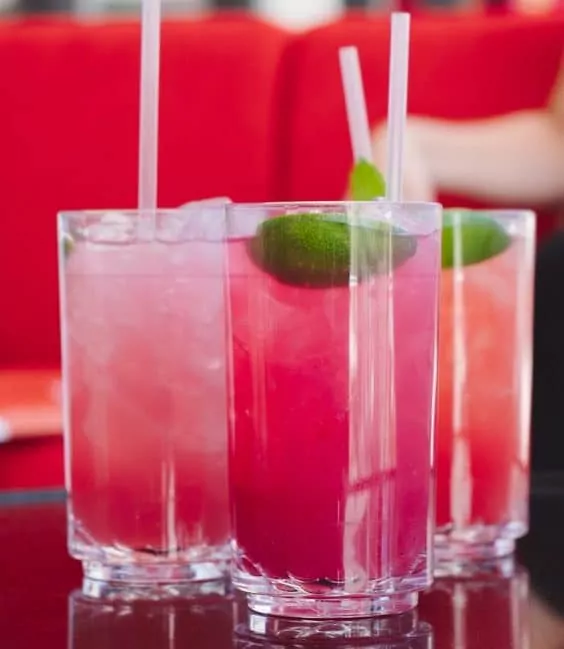by Ellen Blake
In the never-ending quest for better health, “sober curious” is a growing trend. I’ve noticed people drink less lately. I purchase fewer bottles when I entertain now, both for business and social gatherings. Still, I often have some leftover bottles after the event. At first, I thought this change was specific to those people with whom I spend the most time. After all, most of us are aged 50plus with varying degrees of health problems.
I started to observe the drinking habits of an entirely non-random group of young professionals aged 25-30. More specifically, this group included my children and their friends. This health-conscious group of young people also seems to be consuming fewer alcoholic beverages than before, touting the health benefits of their new way of life. They are more aware of the consequences of what they put in their bodies than I was at that age.
What is the “Sober Curious” Movement?
The “sober curious” movement, a popular trend these days in many age brackets, works to create healthy spaces where alcohol is not served. However, in some circles, not drinking is somewhat suspect. This movement strives to make it cool, trendy, and fun to remain sober. Groups with names such as “Sober, not boring” or “Having it all without alcohol” can be found in many cities these days.
Identifying as “Sober Curious”
Identifying as “sober curious” allows us to limit our drinking without putting an all-or-nothing label on ourselves. In a world where many of us are quick to put ourselves and others in specific boxes, this new alcohol-related trend lets you stay in a gray area. It means you know from experience that alcohol can make you feel bad but are unwilling to consider yourself an alcoholic who needs to abstain entirely. A drink once in a while can be fun if appropriate for the situation.
The decision to be “sober curious” is a respectable one for those who do not believe they have a drinking problem. However, those who actually have alcoholic tendencies need treatment; this movement is not intended to minimize the efforts required to control an addiction. “Sober curious” is for folks who don’t need to get sober but understand the benefits of cutting back, or eliminating alcohol it altogether – in other words, it is for the individual who is a “take it or leave it” drinker. It’s a fine line…we all need to be able to take a step back to honestly assess our own drinking behavior.
How Alcohol Affects the Body
Alcohol affects our bodies in a variety of negative ways. Here are some of the main issues.
- Dehydration.
Alcohol is a diuretic that causes your body to eliminate fluids from the stomach and digestive tract. It’s also an astringent, effective for injections in a hospital, that works by dehydration. When alcohol comes into contact with a living cell, everything inside tends to exit the cell, killing germs and creating a sterile injection site. - Poor sleep.
Years ago, doctors recommended a “nightcap” to help induce sleep. Alcohol depresses the central nervous system and makes you feel lethargic. We know now that alcohol actually interferes with deep and restful sleep. Drinking slows respiration and decreases your heart rate and blood pressure. The liver works overtime to metabolize alcohol from the body, speeding up the processes that were slowed down and causing agitation. - Weight gain.
- Alcohol is high in calories, especially beer. It also works as an appetite stimulant, causing you to eat more. And, if you’re like me, alcohol impairs my judgement. This, in turn, leads me to make unhealthy food choices I might not make otherwise.
- Increased cancer risk.
Our risk of cancer increases when alcohol breaks down in our body to a chemical that damages DNA and leaves us unable to repair the problem. This process can lead to out-of-control cell growth which in turn may cause cancerous tumors to develop. The rates of throat, esophagus, stomach and colon cancer are high for long term drinkers due to the caustic nature of alcohol.
The Bottom Line
Are you curious about whether your drinking is considered social, normal or problematic? If you find you can miss a drink without negative consequences, you may decide the “sober curious” movement is for you. And if you worry you are unable to stop drinking despite unfavorable consequences, whether it is one drink a night or one drink a week, consider going without for a limited amount of time. If your reaction to missing a drink is to become agitated, depressed or frustrated, you might realize you have a problem. Statistics show that among social drinkers, 1 in 10 will develop alcoholism. The odds increase to 5 in 10 people who have an alcoholic parent or grandparent. Fortunately, more and more people are choosing to socialize without alcohol as part of the “sober curious” movement. The result is the stigma of admitting to having a problem and seeking help is far less than it used to be.
Let us know your thoughts in the comment section below. We’d love to hear from you.











I am thrilled there is a “sober curious” movement because as you’ve stated here, there are consequences to the body and our lives from consuming too much alcohol. As the movement grows the stigma will fade and people won’t have to suffer in silence because of fear.
Agreed!